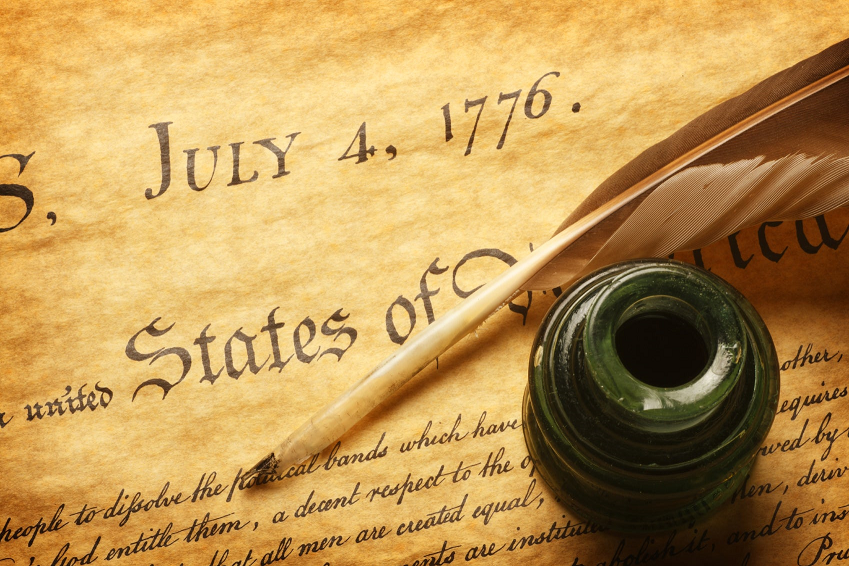Independence Day

Yesterday, the United States of America – and we, its people – celebrated her 247th birthday. And I got to thinking about the day of our actual birth as a nation, and what has gone into our founding and maintenance.
In penning the Declaration of Independence, Thomas Jefferson raised an idea few if any in the Western world (or most other areas) had seen in a political document – that all are created equal, that some rights are not given by governmental whim, but rather are inherent in our humanity. That we all have the right to life, liberty, and the pursuit of happiness; the last, particularly was truly a revolutionary (maybe we should say ‘Revolutionary’) notion.
And the first objections to the Constitution as originally written hinged upon just such inalienable (as Jefferson called them) rights. The ultimate result of the various states’ contributions was the first ten Constitutional amendments – which today we hold up as the Bill of Rights. In the decades and centuries since, there have been only 17 additional amendments ratified.
The Constitution – and certainly the Bill of Rights – leaned heavily on Jefferson’s earlier work. To promote its adoption, Alexander Hamilton, James Madison, and John Jay wrote 85 articles and essays, published under the pseudonym “Publius;” these are now still in print as The Federalist Papers.
Even taking politics out of the question, these documents (certainly the Declaration and The Federalist Papers) are great works of prose. We stand on the shoulders of giants.
But those giants were as human as we – fallible, inconsistent sometimes, failing, as we all do, when measured against a yardstick of perfection. Still, as much as we may deplore Jefferson’s keeping a slave as mistress, George Washington’s failure to free his own slaves at his death, or John Adams’ notorious temper, we all should ask ourselves two things: 1) would we like posterity to judge us by our worst failings and only those?, and 2) if we judge others on that basis alone, and allow that to negate those others’ accomplishments (and the accomplishments of our Founders were legion and earth-shaking in their day), what chance of being remembered with anything but revulsion will any single one of us have?
We, in all humility, would do better, I think, to do our best to curb our own faults, accomplish as much as we can, and feel charity toward those who, like ourselves, struggled with the failings of humanity, both individually and collectively. And we can feel gratitude as well, for their accomplishments, which have enriched our lives, our understanding of what it means to be human. We can be grateful that those accomplishments resulted in our nation existing.
I wrote earlier this year about a trio of Founders – Jefferson, Washington, and Adams. Both Jefferson and Adams died 50 years to the day after the Declaration’s publication – July 4, 1826. Fitting, I think.
What are your thoughts on our nation’s founding?
Please click here to email me directly – I’d love to hear your take.
Until next time,
Peace,
Eric
